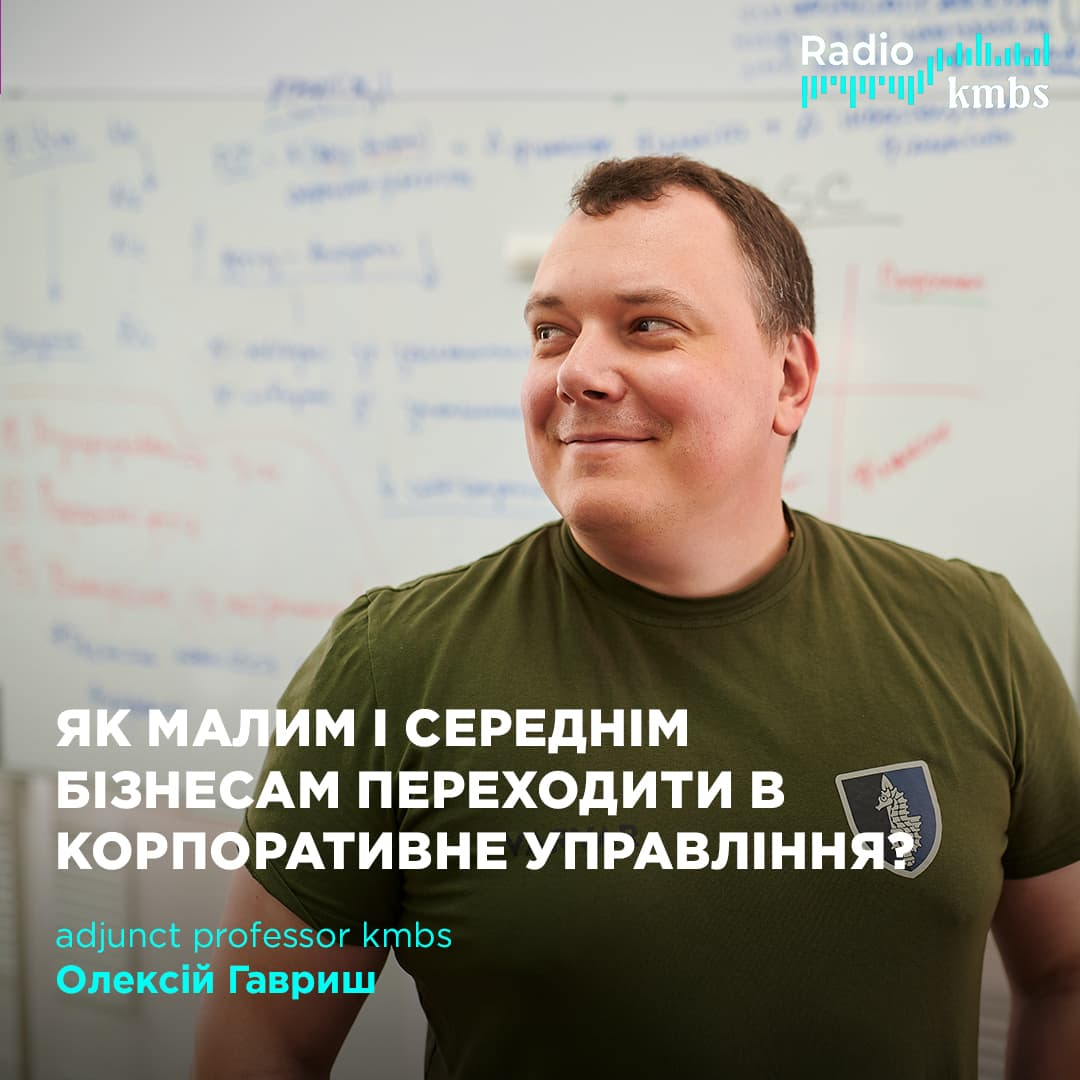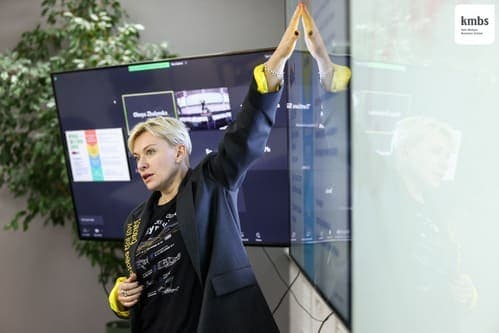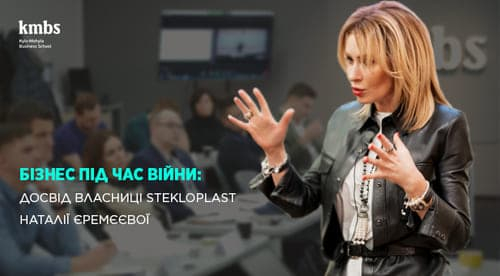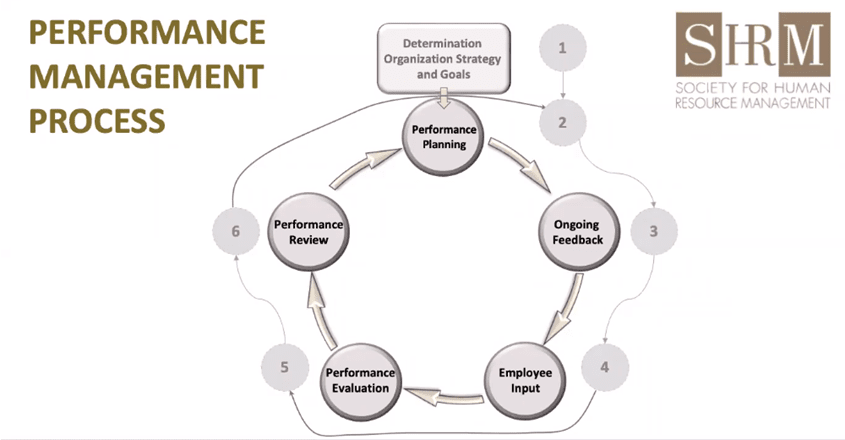Learn first
KMBS latest news in real time

For the latest KMBS events and news, visit KMBS Live at the top right corner of the screen
Open kmbs live
10.05.2022
Productivity management in times of war: meanings
Since the beginning of the war, managers have been worried about keeping the company in a resourceful state and how to set up a team for fruitful action? After all, a business must work. The economy cannot stop.

Find out kmbs news and events first
kmbs
live
13.02.2024 at 12:29


PMBA-25 group visited the exhibition of works by Hanna Sobachko-Shostak, "Eyes of Flowers," ...
13.02.2024 at 12:20


Новий подкаст Radio kmbs "Як малим та середнім бізнесам переходити в корпоративне управління?" ...

"You have to think through your brand story in detail and tell it. Anything you don't tell, people w ...

We often hear from businesses working with cross-cultural teams or expanding into global markets abo ...

Nataliia Yeremieieva, a graduate of Presidents' MBA kmbs, co-founder and co-owner of Stekloplast, an ...



